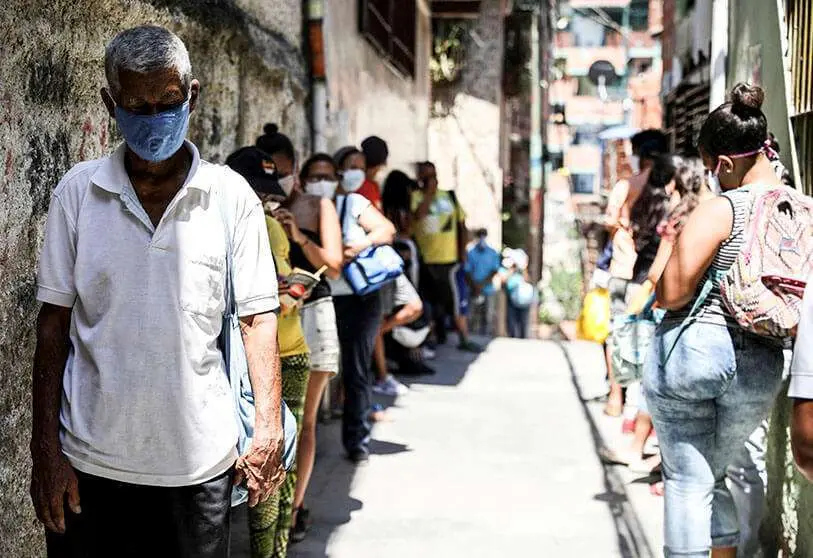Venezuela: when COVID-19 is the lesser evil

The pandemic is making a dent in Latin America. Just a few days ago, America surpassed Europe in the number of infections, although the death rate has not yet reached that level. The incidence goes by neighbourhoods, as in Europe, because of the difference and the time frames with which the measures to avoid the spread of the coronavirus have been applied: Spain has almost 30,000 recognized deaths and Portugal barely 1,200. All governments are involved in defeating the threat, and in the decisions necessary to stop it.
One country that is relatively concerned about the incidence of the virus is Venezuela. The situation of Venezuelan society, in which it is difficult for the population to find food, have access to drinking water, electricity, medicines and fuel supplies, also means that hospitals do not have the essential elements to provide minimum acceptable health care. There is fear of contagion, as there is throughout the world, especially for the elderly, who are the most vulnerable. But given the risks that Venezuelans face these days, the threat of COVID-19 is quite relative.
Going to supermarkets and grocery stores is no longer an option in the face of the shortage of products on their shelves. Getting food into the various humanitarian programs is even more difficult. Shifts can last for days until you get to the deliverymen who administer basic necessities. Does anyone question whether in the hunger queues of Caracas, Maracaibo or Barquisimeto it is necessary to keep a social distance of two metres, when the aim is to get a meal in order to survive?
The testimonies of those who try to refuel their work or private vehicles are devastating: you have to wait up to three days to buy between 20 and 30 litres of petrol, in the eleventh oil-producing country on the planet! Venezuela is the country with the largest oil reserves in the world, 303 million barrels per year. And to buy six and a half gallons of fuel you have to wait three days in line at gas stations.
Salesian missionaries have documented this whole social emergency situation, which makes the coronavirus a minor problem for Venezuelans in this terrible period of their lives as a result of the dictatorship imposed by Chavism. The Salesians are one more platform of support for a population that no longer has solutions that do not involve humanitarian aid from abroad, and they lend their support especially to the most vulnerable segment of the population in the face of this tragedy, children. They offer more than seven hundred meals a day to alleviate the risk of malnutrition in children.
The consequences of the shortage on hygiene and sanitation in the streets of the cities must be added to this. A dramatic scenario that leads Venezuela to a new massive wave of migrants to neighbouring countries that will occur when restrictions derived from the virus are gradually lifted. Empty pots and pans have been heard at night in the Venezuelan capital, but as a sign of protest. The U.S. sanctions are harming the population and depriving them of important services provided by U.S. companies. There is a curfew decreed by Maduro in the areas bordering Colombia and Brazil. Many Venezuelans who had left the country have been forced to return from Brazil, Peru and Colombia, as they have no possibility of accessing health care. A very sad return to their homeland. Everything is turning against that brother country with so many ties to Spain.
And the opposition to the dictatorial regime has not yet found the right way to remove the usurper from power. The concern of Venezuelans is not to follow the events in the palace, such as the operation Gideon against Maduro, which included the landing of armed men in La Guaira, organized by opposition soldiers and a couple of former Green Berets. Being forced to wait in line for several days to get a kilo of flour or a few cans of canned food, that and the coronavirus are secondary concerns.

